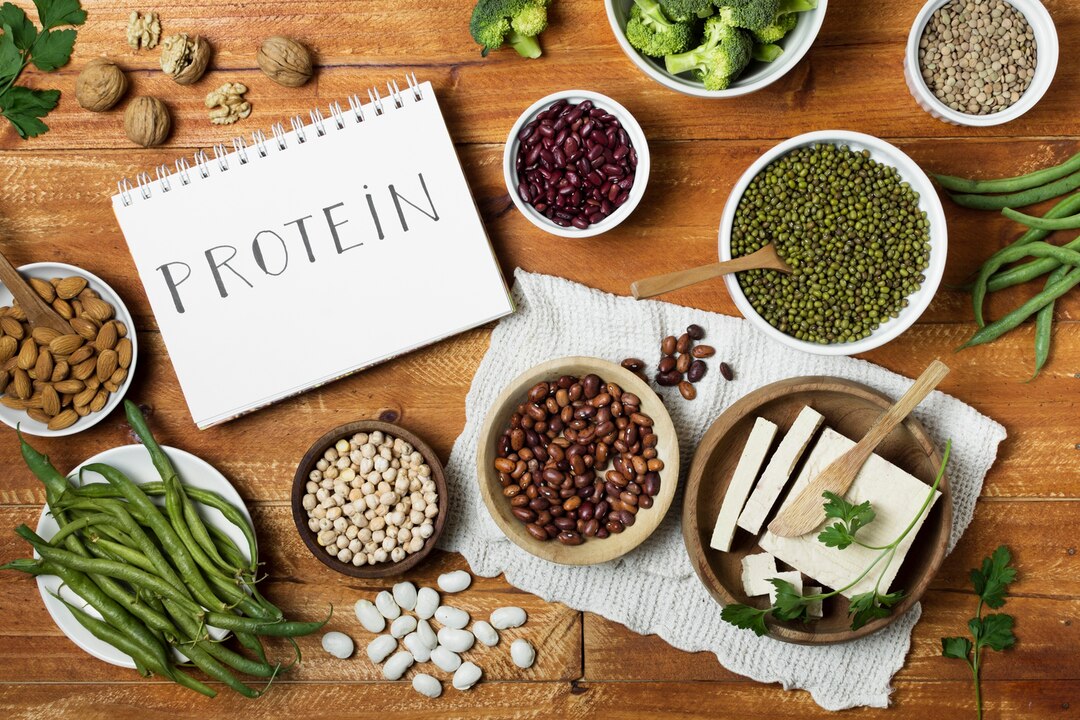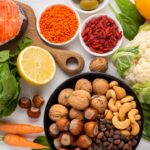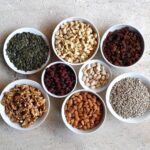A growing range of plant-based proteins is becoming available for people seeking to reduce their intake of animal-based foods. Soy, pulses, nuts, spirulina, and other ingredients can make a tasty, high-protein meal.
A person may try a vegan diet for health, animal welfare, or religious reasons. In 2016, the Academy of Nutrition and Dietetics stated that a vegetarian or vegan diet could provide all the nutritional requirements of adults, children, and those who were pregnant or breastfeeding.
Even so, getting enough protein and essential vitamins and minerals can be harder for people who do not eat meat or animal products. A person must plan ahead to ensure they get enough protein, calcium, iron, and vitamin B-12, which people on an omnivorous diet get from animal products.
Read on for a list of some of the best plant-based foods for protein. We also discuss the differences between animal and plant proteins, and whether plant-based protein powders can be good sources of protein.
15 Best Plant-Based Proteins
The right plant-based foods can be excellent sources of protein and other nutrients, often with fewer calories than animal products.
Some plant products, such as soybeans and quinoa, are complete proteins, which means that they contain all nine essential amino acids that humans need. Others are missing some of these amino acids, so eating a varied diet is important.
The following healthful, plant-based foods have a high-protein content per serving:
- Tofu, Tempeh, and Edamame
Soy products are among the richest sources of protein in a plant-based diet. The protein content varies with how the soy is prepared:
- Firm tofu (soybean curds) contains about 10 g of protein per ½ cup
- Edamame beans (immature soybeans) contain 8.5 g of protein per ½ cup
- Tempeh contains about 15 g of protein per ½ cup
Tofu takes on the flavor of the dish it is prepared in, making it a versatile addition to meals. People can try tofu as a meat substitute in sandwiches or soups.
These soy products also contain good levels of calcium and iron, making them healthful substitutes for dairy products.
- Lentils
Red or green lentils contain plenty of protein, fiber, and key nutrients, including iron and potassium. Cooked lentils contain 8.84 g of protein per ½ cup.
Lentils are a great protein source to add to a lunch or dinner routine. They can be added to stews, curries, salads, or rice to boost protein intake.
- Chickpeas
Cooked chickpeas are high in protein, containing around 7.25 g per ½ cup.
Chickpeas can be eaten hot or cold and are highly versatile with many recipes available. They can be added to stews, curries, or roasted in the oven with spices like paprika. Hummus, made from chickpeas, can be added to a sandwich for a protein-rich alternative to butter.
- Peanuts
Peanuts are protein-rich, full of healthful fats, and may improve heart health. They contain around 20.5 g of protein per ½ cup. Peanut butter is also rich in protein, with 3.6 g per tablespoon, making peanut butter sandwiches a healthful snack.
- Almonds
Almonds offer 16.5 g of protein per ½ cup. They also provide a good amount of vitamin E, which is great for the skin and eyes.
- Spirulina
Spirulina, a blue-green algae, contains around 8 g of protein per 2 tablespoons. It is also rich in nutrients like iron, B vitamins (excluding vitamin B-12), and manganese.
Spirulina is available online as a powder or supplement. It can be added to water, smoothies, or fruit juice, or sprinkled over salads or snacks for extra protein.
- Quinoa
Quinoa is a grain with a high-protein content and is a complete protein. Cooked quinoa contains 8 g of protein per cup.
This grain is also rich in other nutrients, including magnesium, iron, fiber, and manganese. It is versatile and can be used in soups, stews, or salads, or as a main course.
- Mycoprotein
Mycoprotein is a fungus-based protein, with products containing around 13 g of protein per ½ cup serving. These are often advertised as meat substitutes and are available in products like “chicken” nuggets or cutlets. Some may contain egg white, so it’s essential to check the label.
People with mushroom allergies may wish to avoid mycoprotein, as it is derived from the fungus Fusarium venenatum.
- Chia Seeds
Chia seeds are a complete source of protein, containing 2 g per tablespoon. They are also rich in fiber and heart-healthy Omega-3 fatty acids.
Chia seeds can be added to smoothies, sprinkled over plant-based yogurt, or soaked in almond milk to make pudding.
- Hemp Seeds
Hemp seeds, like chia seeds, are a complete protein. They offer 5 g of protein per tablespoon and can be used similarly to chia seeds.
- Beans with Rice
Rice and beans, eaten together, form a complete protein. This classic meal provides 7 g of protein per cup.
Try rice and beans as a side dish, or mix them with hummus and spread on Ezekiel bread for a protein-packed meal.
- Potatoes
A large baked potato provides 8 g of protein per serving. Potatoes are also high in potassium and vitamin C.
For a flavorful snack, try adding hummus to your baked potato. Two tablespoons of hummus provide an additional 3 g of protein.
- Protein-Rich Vegetables
Many dark-colored leafy greens and vegetables contain protein. While they may not provide enough protein on their own, they can be paired with other protein-rich foods to boost your intake.
- A medium stalk of broccoli contains about 4 g of protein
- Kale offers 2 g of protein per cup
- 5 medium mushrooms provide 3 g of protein
- Seitan
Seitan is a complete protein made from wheat gluten. It provides 21 g of protein per 1/3 cup when cooked in soy sauce, which enhances its amino acid profile. Seitan is a great meat substitute for those without gluten sensitivity.
- Ezekiel Bread
Ezekiel bread is a nutrient-dense alternative to traditional bread. Made from barley, wheat, lentils, millet, and spelt, it offers 4 g of protein per slice. Toast it and add peanut or almond butter for an extra protein boost.
What About Protein Supplements?
Some protein powders are plant-based and can be a complete or incomplete source of protein, depending on the plants used.
While protein supplements can help people meet daily nutritional goals, the American Dietetic Association recommends consuming a variety of protein-rich foods instead. Some protein supplements may contain high amounts of sugar or sodium, so reading nutrition labels is essential.
Plant vs. Animal Protein
The Academy of Nutrition and Dietetics recommends a minimum protein intake of 0.8 grams per kilogram of body weight, about 60 g for a person weighing 165 pounds. Individuals looking to build muscle, pregnant or nursing women, and older adults may require more protein.
Animal products like meat, eggs, and milk are naturally high in protein, which contains all nine essential amino acids. Some plant products, like soybeans and quinoa, are complete proteins, while others are incomplete. A varied plant-based diet can provide the full range of amino acids needed.
Benefits and Risks of a Vegetarian or Vegan Diet
A vegan or vegetarian diet can lower the risk of certain diseases, such as heart disease, some cancers, type 2 diabetes, and obesity. However, planning is essential to avoid deficiencies in protein, calcium, and vitamin B-12.
A study from 2014 found that people following a vegan diet consumed less saturated fat and dietary cholesterol but had lower protein, calcium, and energy intake. A well-planned vegan diet can offer significant health benefits, such as reducing inflammation and promoting heart health.
A plant-based diet requires careful planning to ensure that all nutritional needs are met. However, with the right protein-rich plant foods, individuals can maintain a healthy and balanced diet while reducing the risk of certain diseases. Consulting a doctor or nutritionist is recommended to ensure that any potential nutrient gaps are addressed through supplements or carefully selected foods.








